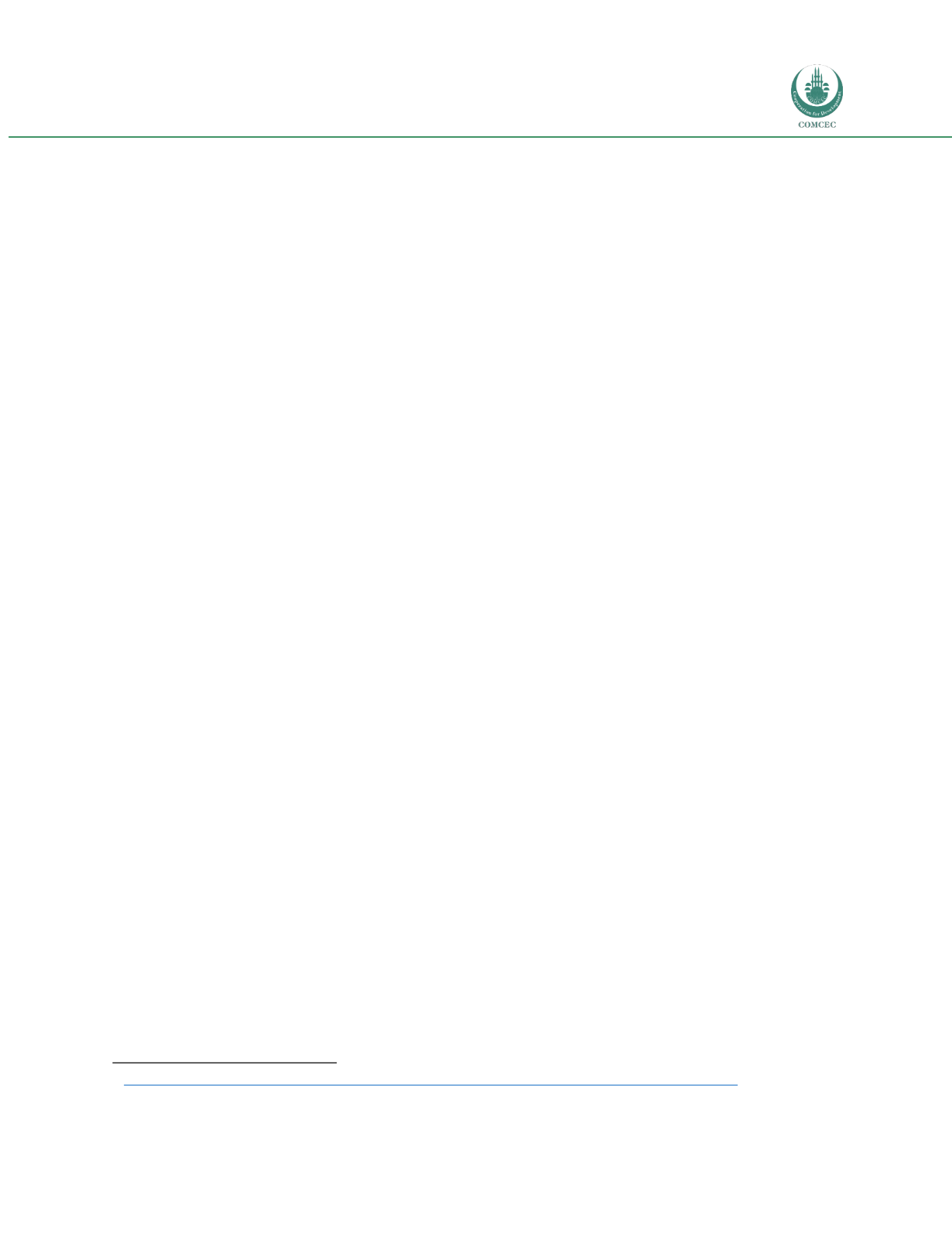

Strengthening the Compliance of the OIC Member States
to International Standards
107
6.2.3.3
Impact of Technical Assistance and Capacity Building
Technical assistance, primarily from the European Union, continues to be an important factor in the
development of standards and harmonization in Senegal, given the severe constraints under which
national institutions operate. Since 2014, the EU has provided Euro 12m to support development of
regional quality infrastructure, through three phases of assistance. Activities include support to the
development of the elements of national quality infrastructure that are lacking in Senegal, as well as
helping roll out the regional dimension of quality management. Looking forward, technical assistance is
likely to focus on assisting Senegal to develop its quality infrastructure in line with UEMOA regional
plans, including development of institutions and practices—like certification—that are relatively under-
utilized at the present time.
The Senegalese authorities are currently seeking to develop additional partnerships, looking beyond the
EU assistance just referred to. The International Trade Center is looking to be of assistance with TBT
issues, so that is one direction that might be explored in the future. For the present, the development
banks have not been active in the development of quality infrastructure and standardization in
Senegal—something that can perhaps be remedied as this issue becomes more salient in a range of
developing countries in the future, particularly given the rise of the GVC paradigm where the ability to
conform to standards—and demonstrate conformity by certification—is key to joining in the
international fragmentation of production.
6.2.3.4
Standards-Related Issues in Export Markets
Fish is an important sector for the Senegalese economy.
16
The EU has historically been an export market,
but with the advent of stricter standards controls there under the HACCP program in the 1990s, the
country needed to upgrade performance in order to meet the new requirements. In the 1990s,
compliance with EU standards cost the Senegalese industrial fishing sector CFAF 14.7 billion. However,
half of this amount was provided by a grant from the French Development Agency. Nonetheless, the
compliance costs involved remained substantial. Progress has been notable: a new institutional
mechanism has been developed with a recognized authority in charge of compliance; laboratories have
been upgraded; the sector has been restructured at the firm-level; and training has been provided in
both the public and private sectors. Against this background of progress, it is important to keep the costs
in perspective. On an annual basis, they amounted to around 3% of export earnings. Moreover, the
additional cost of CFAF 50 per kilogram of exported fish generates CFAF 1,714 in foreign exchange
1
6 http://siteresources.worldbank.org/INTRANETTRADE/Resources/Topics/Standards/CostsComplianceSenFish.pdf .















